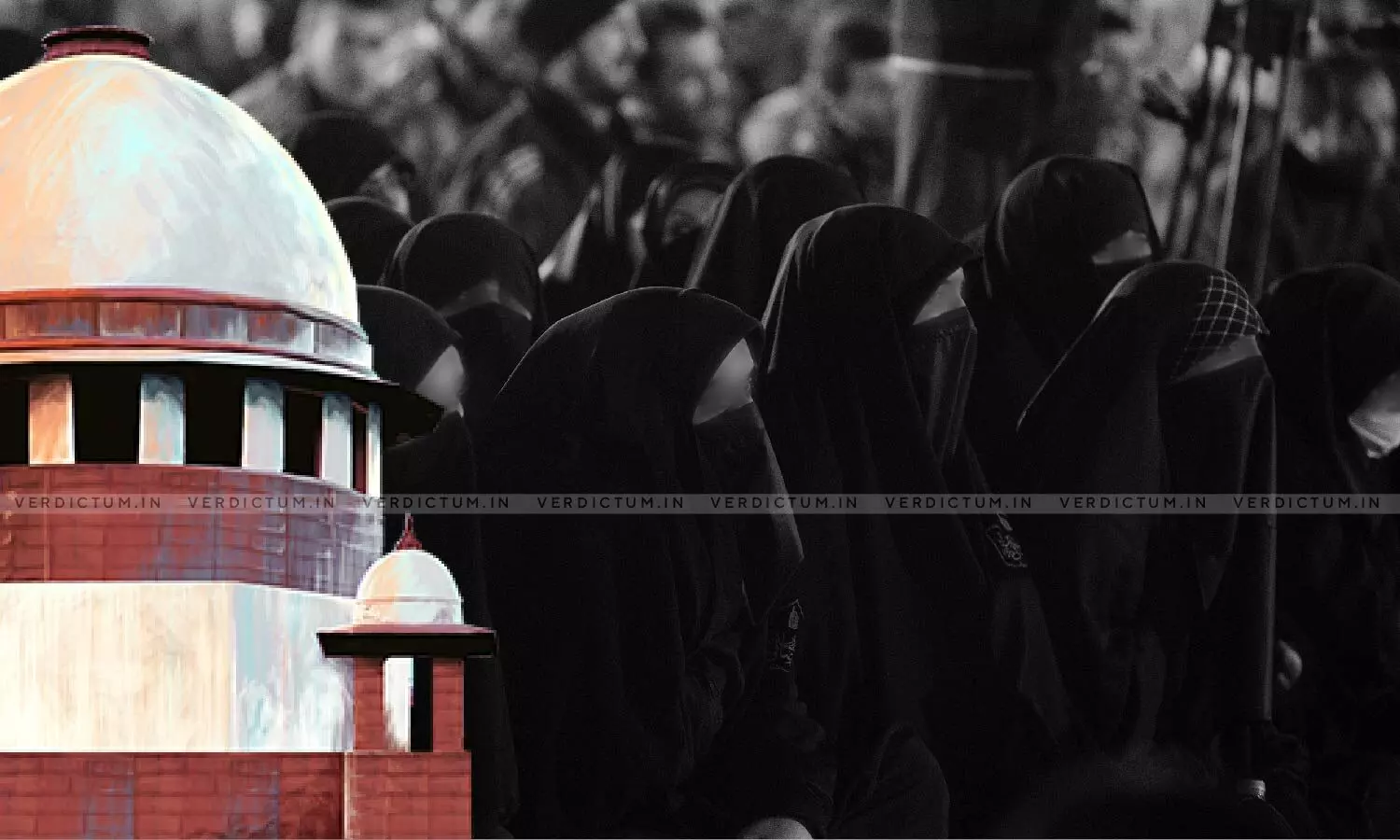
Times Have Changed: Supreme Court Says As It Decides To Consider Validity Of Muslim Personal Law Which Doesn't Give Muslim Women Equality In Succession
 |
|The Supreme Court has undertaken a significant exercise of examining whether Muslim women have the right to equality in succession, particularly in light of Articles 14 (Right to equality) and 15 (Prohibition of discrimination on grounds of religion, race, caste, sex, or place of birth) of the Indian Constitution.
This pivotal question emerged during the adjudication of a Civil Appeal before the Bench of Justice C.T Ravikumar and Justice Rajesh Bindal. While getting into the issue of female inherence under Muslim personal law, the Court observed that times have changed since some views were expressed by the High Court on the subject, as Supreme Court has delivered judgments in Prakash & Ors. v. Phulavati & Ors. and Shayara Bano v. Union of India & Ors. subsequently.
The case at hand originated from a Suit filed by respondents, contending that a will executed by late Hazi favoured his three sons namely Dharma, Gulzar and Karam Chand leaving the fourth son namely Tarsem. The Trial Court had decreed the Suit. The First Appellant Court modified the judgment and decree of the Trial Court and directed that late Hazi could execute Will only to the extent of 1/3rd of his estate, and the same was upheld to that extent. For the remaining 2/3rd estate all the legal heirs were to share the estate equally.
In an Appeal to the High Court, the genuineness of the Will was upheld. The judgment and decree of the First Appellate Court were set aside and that of the Trial Court was restored.
During proceedings, it was argued by the Appellant that under Mohammedan Law, a testator is entitled to bequeath one-third of their estate to a third party, with the remaining two-thirds to be evenly distributed among legal heirs, unless otherwise agreed upon by all parties involved.
Reference was made to the judgment of the Karnataka High Court in Narunnisa v. Shek Abdul Hamid., AIR 1987 KANT 222, which underscored a daughter's entitlement to one-third of her father's estate, even if his will favored unequal distribution. "If a Mohammedan is survived by a son and a daughter and the daughter does not consent to the deposition by the testator of giving 3/4th of the property to the son and 1/4th to the daughter, she will be entitled to claim 1/3rd of the property as her share of inheritance and not 50%," the High Court had held.
While going to the root of the issue, the Bench came across “The Hedaya – Commentary on the Islamic Laws” translated by Charles Hamilton, “Mohammedan Law by Syed Ameer Ali” containing the law relating to ‘Gifts, Wakfs, Wills, Pre-emption and Bailment’, “Principles of Mohammedan Law by Mulla” and others.
The Court then observed, "The times have changed ever since the aforesaid views were expressed by the High Courts specially in view of the judgments of this Court in Prakash and others v. Phulavati and others5 and Shayara Bano v. Union of India and others."
The Bench opined that the matter requires deeper consideration on the following issues:
i. Whether Muslim women have right to claim equality in succession in view of the mandate of Constitution of India under Articles 14 and 15 thereof in the light of Article 44.
ii. Whether a testator, who is governed by Mohammedan Law, is entitled to execute a Will of his entire estate left, according to his wish?
iii. Whether a testator, who is governed by Mohammedan Law, can execute a Will to the extent of 1/3rd of the estate left by him in favour of any or more of his legal heirs without the consent of other legal heirs?
During the hearing, on May 16, the Court appointed Senior Advocate V. Giri as the Amicus Curiae. "Upon request, Mr. V. Giri, learned Senior Counsel has graciously accepted to assist in this matter as Amicus Curiae. Mr. Amit Krishnan, AOR shall assist the learned Amicus Curiae in the matter," the Court said.
Noting that there is no direct judgment on the issue, and as the issues have larger ramifications, the Court also sought the assistance of the Attorney General of India.
"The Registry is directed to supply the complete set of paper book of these appeals to Mr. Amit Krishnan, AOR, assisting the learned Amicus Curiae and the Office of the learned Attorney General for India along with a copy of this order, after incorporating the corrections in the paper book, as sought for by the appellant," the Court ordered.
Accordingly, the Bench scheduled the matter for further consideration on July 25.
Cause Title: Tarsem v. Dharma & Ors. [Civil Appeal No(s): 2497-2498/2024]
Appearance:-
Appellant: Advocates Kheyali Singh, R K Kapoor, Rajat Kapoor, Krishna Joshi
Respondent: Advocates Manish Kumar Srivastava, Hardik Vashisht, Birendra Kumar Mishra (AOR), Moksh Arora, Poonam Atey, Santosh Ramdurg, Yash Srivastava, Akshit Gadhok, Sirajuddin
Click here to read/download the Order